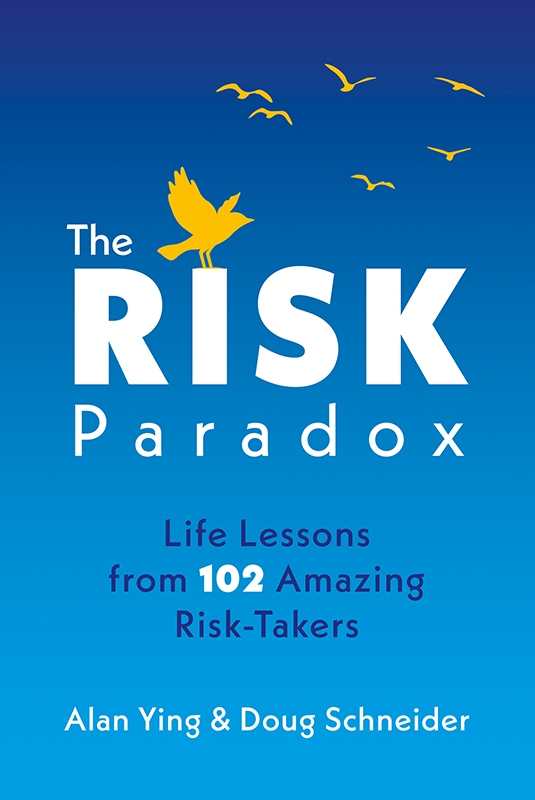The Risk Paradox
Life Lessons from 102 Amazing Risk-Takers
The Risk Paradox is a valuable psychological exploration in which the experiences of a hundred adventurous risk-takers are mined for lessons in decision-making.
Alan Ying and Doug Schneider’s The Risk Paradox explores the experiences of a hundred–plus risk-takers who arrived at personal junctures and decided to take a leap; it distills lessons from their tales.
Different people take different approaches to risk, Ying and Schneider assert: some avoid any endeavor that that might result in failure, even if they pass up opportunities for great success in the process; others jump at any chance, heedless of threats of wiping out. Focusing on the factors that inspire people who are quick to take chances, their book shares the stories of an array of people who took “inadvisable risk[s].” They represent a diverse range of ages, genders, and backgrounds, though all have been deemed old enough to have amassed sufficient life experience to allow for personal reflection on their actions.
The interviewed people include technology CEOs and the beleaguered wife of a sex addict, and their risks include actions like dropping out of the competitive business world to spend time with family and volunteering with underprivileged people. However, the majority of the risks represented involve new business ventures, somewhat limiting the book’s audience to fellow entrepreneurs. Further, the portraits of the risk-takers are brief and short on depth; their stories are summarized and appended with a few quotes from the person reflecting on the decisions they made.
Still, the book is filled with interesting observations, as about the “Right Time Fallacy,” or the the false belief that one must wait for the right moment in order to take a chance. It notes that spousal support is a frequent key to success and that risk tastes different with age. And it does an able job of identifying patterns that people can observe in their own lives at any given moment.
Raising questions of nature verses nurture, the book identifies the patterns and rules that surround risk-taking behavior. “Moments of truth” come when a person realizes that the path they have been following is no longer viable: maybe they are unable to make a decent living, maybe the big break they were pursuing is not coming, or maybe they are facing a life-changing illness. Such epiphanies are often catalysts for big risks. But other patterns emerge as well: out of the risk-takers represented in the book, “few people regret the risks they took that didn’t work out.”
The Risk Paradox is a valuable psychological exploration in which the experiences of a hundred adventurous risk-takers are mined for lessons in decision-making.
Reviewed by
Matt Benzing
Disclosure: This article is not an endorsement, but a review. The publisher of this book provided free copies of the book and paid a small fee to have their book reviewed by a professional reviewer. Foreword Reviews and Clarion Reviews make no guarantee that the publisher will receive a positive review. Foreword Magazine, Inc. is disclosing this in accordance with the Federal Trade Commission’s 16 CFR, Part 255.

